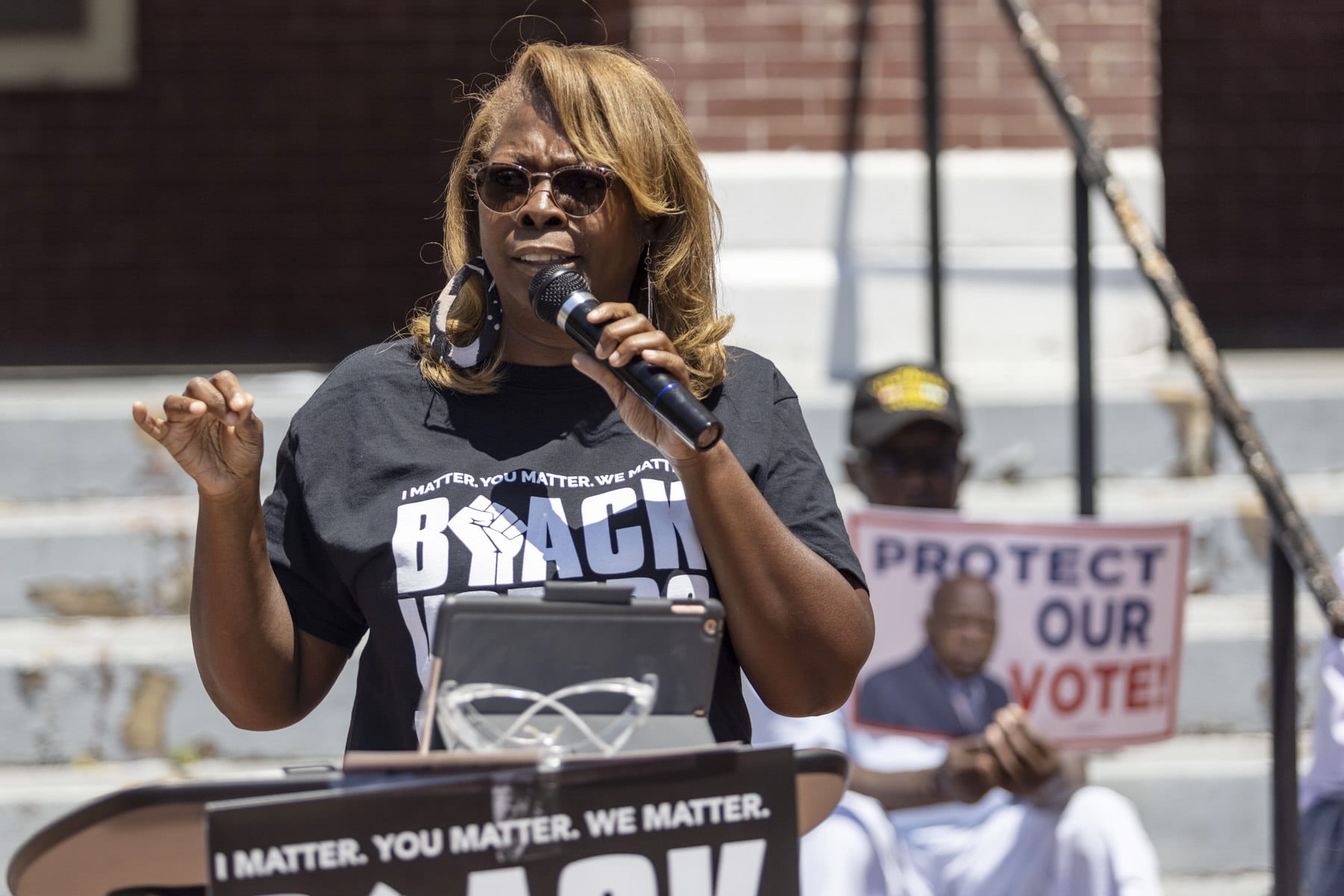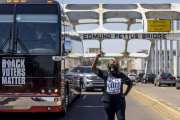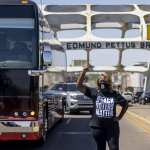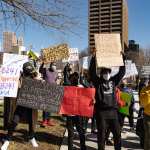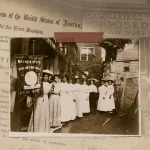The battle for voting rights came to West Virginia Sen. Joe Manchin’s backyard this week, as the mustard seed-sized Black population of the state got reinforcements from across the country.
A caravan of Black organizers pulled into Charleston Thursday for a late afternoon rally in the shadow of the gold dome of the Capitol where Manchin served as a state lawmaker before he was elected secretary of state, governor and U.S. senator.
In one of the whitest states in the country, the activists were there to deliver a message: Black voters matter.
“We want to let our senator know we are watching,” said Bluefield, West Virginia activist Charkera Ervin. “The Black community in this state knows what it’s like to feel invisible. In November, Black folks showed up and we showed out, but they are trying to make us invisible again.”
Manchin has been a key figure in the effort among congressional Democrats to pass federal voting rights legislation. Democrats argue that the For the People Act and the John Lewis Voting Rights Advancement Act would counter the voter suppression laws being passed in GOP-controlled state legislatures in response to the record turnout among minority voters and women in the 2020 election.
But Manchin has raised concerns about the pair of bills, has withheld his support barring changes and has said he will not vote to abandon the filibuster — a necessary step without bipartisan support for legislation with Democrats narrowly in charge in the Senate.
-
Read Next:
LaTosha Brown, a co-founder of Black Voters Matter, said the fight for voting amounts to “a political civil war.”
“There are a small group of white men who want to continue to hold power,” Brown said in an interview after the For the People Act was blocked from advancing on Tuesday. Manchin voted to allow debate on the measure but has said he is against the overall plan. “They’ve never had to share power, and they’ve always created a system to give themselves the advantage.”
In recent weeks, Manchin has met with civil rights leaders who have urged him to get rid of the filibuster and to join Democrats in support of both bills. The issue is one of urgent concern to the millions of Black voters who were crucial in delivering a Democratic White House, maintaining a majority in the House and eking out a slim majority in the Senate in 2020.
But in 2018, it was Black voters who mattered in Manchin’s nailbiter re-election.
African Americans make up just 3.6 percent of West Virginia’s nearly 1.8 million residents, but as overwhelmingly Democratic voters, they helped Manchin win a second term by a margin of just 3.3 percentage points — less than 20,000 votes.
Manchin has a responsibility to represent all West Virginians, not just the ones who look like him, said Danielle Walker, the lone Black woman in the West Virginia House of Delegates.
“I represent all of my constituents and he should do no less — he should be doing more,” Walker said in an interview before addressing the rally, adding from the stage: “I am an American. I am a voter. I am a taxpayer. I am a patriot. Senator Manchin, you may be the most powerful man in D.C., but you could earn a pink slip.”
Manchin, 73, will be up for reelection in 2024.
Teresa Willis said she voted for Manchin in 2018, but likely won’t do so again. The 62-year-old retired state transportation employee has worked to register voters of all backgrounds with her sister church members and said the backlash against Black voters in Republican statehouses is “terrible.”
“It’s like he’s not considering the Black voters in West Virginia,” Willis said. “Manchin should be here. He needs to look out for all of West Virginia.”
Priscilla Waddy, who joined Willis on the Capitol square for the rally, agreed that Manchin is “not worthy of her vote.” The retired postmaster also helps with voter registration efforts and said as a Black woman, she has to make her voice heard now. Thursday’s event let her know there are other Black Americans who feel as she does, she said.
“They’re trying to keep us silent,” Waddy, 69, said, adding that she plans to continue to register voters. “I hate it. They’re still trying to suppress us. We are as free as they are. Our people have already died for all of that.”
Ann Forcson, also part of the church voter turnout efforts, said she was in fifth grade when the Voting Rights Act of 1965 was passed.
“If I’m still here, I’m still here for a purpose,” said Forcson, who recalled her father giving her a voter registration form when she turned 18, along with the words: “Voting will help you get where you want to be.”
Forcson watched Thursday’s rally holding a sign with a picture of the late congressman John Lewis with the rallying cry, “PROTECT OUR VOTE.” Now 65, she said she will be registering voters this weekend.
“That’s my job,” Forcson said. “As hard as we worked for it, it can be taken away from us with a vote.”
